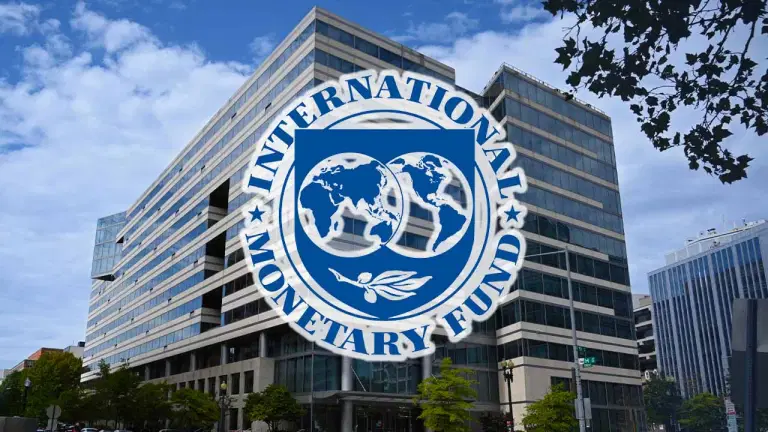Nigeria — Africa’s largest economy by size and population — has been conspicuously left out of the International Monetary Fund’s (IMF) latest list of the continent’s fastest-growing economies.
According to the IMF’s new projections, smaller nations such as Benin Republic, Côte d’Ivoire, Rwanda, Uganda, and Ethiopia are now leading Africa’s growth path, outperforming Nigeria in economic expansion and reform implementation.

Nigeria’s Growth Still Sluggish
The IMF’s report projects Nigeria’s economic growth at around 3.3% in 2024, showing little improvement compared to previous years.
By contrast, several African countries are recording much stronger growth rates — ranging between 6% and 11% — supported by better infrastructure, stronger institutions, and more diversified economies.
Nations such as Rwanda, Benin, Uganda, Ethiopia, Côte d’Ivoire, and Senegal have become models of resilience, driven by sound economic management and reform-driven policies.
Africa’s New Economic Powerhouses
The IMF identified the following countries as Africa’s growth leaders for 2024–2025:
| Country | Projected Growth Rate | Key Growth Drivers |
|---|---|---|
| Niger | ~11.2% | Oil and gas projects, high commodity prices |
| Senegal | ~8.2% | Diversified economy, infrastructure expansion |
| Libya | ~7.9% | Oil recovery, gradual political stability |
| Rwanda | ~7.2% | Tourism rebound, tech investment, sound governance |
| Côte d’Ivoire | ~6.8% | Cocoa exports, industrial and infrastructure growth |
| Ethiopia | ~6.7% | Manufacturing expansion, reform momentum |
| Benin | ~6.4% | Port development, agricultural exports, fiscal discipline |
| Uganda | 6.0–7.5% | Oil production, infrastructure growth, services sector expansion |
These nations are now described as “Africa’s new engines of growth,” largely due to their efforts to diversify away from commodity dependence and maintain macroeconomic stability.

Why Nigeria Is Lagging Behind
Despite its vast resources and human capital, Nigeria continues to struggle with structural and policy-related challenges, including:
-
Overdependence on oil: The economy remains heavily tied to crude exports, making it vulnerable to price shocks.
-
Inflation and currency instability: Rising inflation and naira volatility have weakened purchasing power and investor confidence.
-
High debt service costs: A large portion of national revenue goes toward debt repayment, leaving limited funds for infrastructure or social programs.
-
Policy inconsistency: Frequent shifts and poor implementation discourage long-term investments.
-
Infrastructure and power deficits: Inadequate electricity and transport systems stifle productivity.
-
Population pressure: With over 220 million people, GDP growth still trails population growth, limiting per capita income gains.

Africa’s Broader Economic Outlook
Across the continent, growth remains strong.
The African Development Bank (AfDB) projects that Africa’s economy will expand by 3.8% in 2024 and 4.2% in 2025, outpacing global averages.
In West Africa, growth is expected to average 4%, driven by Benin, Côte d’Ivoire, and Senegal.
Meanwhile, East African nations like Rwanda, Ethiopia, and Uganda continue to show impressive gains due to political stability, diversification, and steady investment inflows.
What It Means for Nigeria
-
Falling investor confidence: Sluggish growth makes Nigeria less attractive than faster-growing peers.
-
Rising poverty: Economic output below population growth deepens poverty levels.
-
Fiscal risks: Inflation and revenue shortfalls threaten macroeconomic stability.
-
Urgent reform need: Analysts emphasize stronger fiscal, structural, and institutional reforms to restore growth.

How Nigeria Can Reclaim Its Position
To return to the forefront of Africa’s economic growth, experts recommend Nigeria should:
-
Diversify the economy: Invest in agriculture, manufacturing, technology, and services beyond oil.
-
Strengthen fiscal discipline: Improve tax collection, cut waste, and prioritize capital investment.
-
Stabilize the naira: Implement transparent forex policies and sound monetary management.
-
Expand infrastructure: Build roads, improve logistics, and strengthen the power grid.
-
Enhance business climate: Simplify regulations, ensure policy consistency, and protect investors.
-
Invest in people: Boost education, healthcare, and skill development.
-
Uphold good governance: Tackle corruption and make public spending more transparent.
A Wake-Up Call for Africa’s Giant
Nigeria’s exclusion from the IMF’s list serves as a sobering reminder that natural resources and population size alone are not enough to drive prosperity.
Smaller nations are overtaking Africa’s largest economy through bold reforms, fiscal discipline, and innovation.
Without decisive and credible reforms, experts warn, Nigeria risks falling further behind as others accelerate toward sustainable growth and economic transformation.




